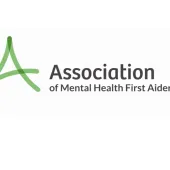HSE launches Working Minds campaign

New campaign aims to encourage employers to promote good mental health in work
WORK-related stress and poor mental health risk becoming a health and safety crisis for Great Britain’s workplaces, the Health and Safety Executive (HSE) has warned.
Whilst the full impact of the COVID-19 pandemic is yet to be fully understood, mental health issues are the number one reason given for sick days in the UK. Last year more than 17 million working days were lost because of stress, anxiety, or depression, and a recent survey by the charity Mind suggests that two in five employees’ mental health had worsened during the pandemic.
In response, the HSE is today [16 November] launching its new campaign, ‘Working Minds’, at its Health and Work Conference, which examines issues relating to health at work. The campaign aims to help businesses recognize the signs of work-related stress and make tackling issues routine.
While ‘Working Minds’ is specifically targeting 6 million workers in small businesses, the HSE is calling for a culture change across Britain’s workplaces, to ensure psychological risks are treated the same as physical ones in health and safety risk management.
HSE chief executive Sarah Albon said: ‘Work-related stress and poor mental health should be treated with the same significance as risks of poor physical health and injury. In terms of the affect it has on workers, significant and long-term stress can limit performance and impact personal lives.
‘No worker should suffer in silence and if we don’t act now to improve workers’ mental health, this could evolve into a health and safety crisis.
‘The pandemic has highlighted the need to protect the health of employees who have faced unprecedented challenges; the Government is committed to building back better and we want to make sure good mental health is central to this.’
The HSE is reminding business that no matter where people work, employers have a legal duty to assess the risks in the workplace, not just in terms of potential hazards and physical safety. They should also promote good working practices. It says this promotes an open environment where employees can share their concerns and discuss options to ease pressures.
Sarah Albon added: ‘Our campaign is focused on giving employers a clear reminder of their duties while championing reducing work-related stress and promoting good mental health at work.’
The HSE has partnered with several organizations to highlight the triggers of stress, the legal duty of employers, and how to manage the risks. The network of Working Minds champions includes the charity Mind, which supports and empowers anyone experiencing a mental health problem in England.
Dane Krambergar, head of workplace well-being services at Mind, said: ‘Mind has long been working with employers of different sizes and sectors to help them create mentally healthy workplaces, but this has never been more important. We recently surveyed over 40,000 staff working across 114 organizations. Two in five (41%) employees told us their mental health had worsened during the pandemic. This campaign couldn’t have come at a better time, given the impact the pandemic has taken on employers and staff.’
Working Minds is aimed specifically at supporting small businesses by providing employers and workers with easy-to-implement advice, including simple steps in its ‘5 R’s’ to Reach out, Recognize, Respond, Reflect, and make it Routine.
Employers and workers wanting to know more about the campaign, including the legal obligations, advice, and tools available, should click here.









